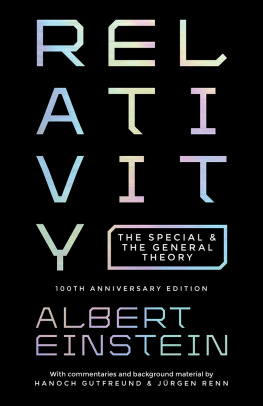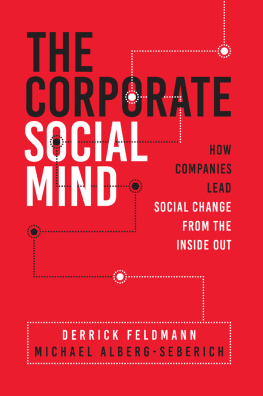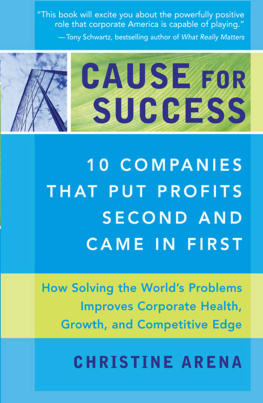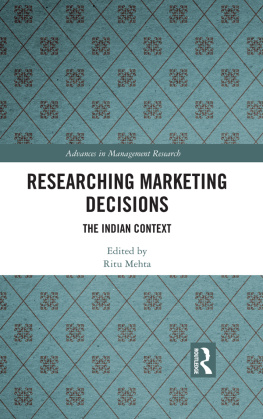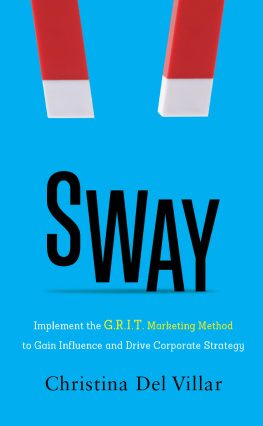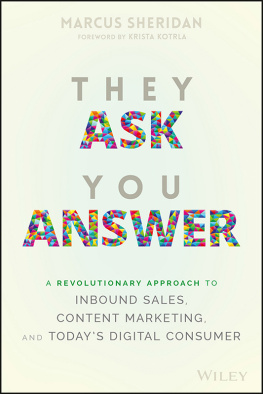Compassion, Inc.
Compassion, Inc.
How Corporate America Blurs the Line
between What We Buy, Who We Are,
and Those We Help
Mara Einstein

University of California Press, one of the most distinguished university presses in the United States, enriches lives around the world by advancing scholarship in the humanities, social sciences, and natural sciences. Its activities are supported by the UC Press Foundation and by philanthropic contributions from individuals and institutions. For more information, visit www.ucpress.edu .
University of California Press
Berkeley and Los Angeles, California
University of California Press, Ltd.
London, England
2012 by Mara Einstein
Library of Congress Cataloging-in-Publication Data
Einstein, Mara.
Compassion, Inc. : how corporate America blurs the line between what we buy, who we are, and those we help / Mara Einstein.
p.cm.
Includes bibliographical references and index.
ISBN 978-0-520-26652-0 (cloth : alk. paper)
1. Social responsibility of businessUnited States. 2. Consumer behaviorMoral and ethical aspectsUnited States. I. Title.
HD 60. E 38 2012
381.3dc23
2011030385
Manufactured in the United States of America
21201918171615141312
10987654321
In keeping with a commitment to support environmentally responsible and sustainable printing practices, UC Press has printed this book on Rolland Enviro100, a 100% post-consumer fiber paper that is FSC certified, deinked, processed chlorine-free, and manufactured with renewable biogas energy. It is acid-free and EcoLogo certified.
To my mother, Barbara, who taught me to
embrace education, revel in the theatrical, fight
for social justice, and put family first, and to my
daughter, Cayla, who is so very lucky to have a
grandmother who would leave her such a legacy
Contents
.
Preface
The inspiration for this book occurred on October 13, 2006. I was watching The Oprah Winfrey Show, and on that day Oprah and U2s lead singer, Bono, were launching a new marketing campaign called (RED). Whats that? You know what it isits the Gap INSPI(RED) T-shirt; its the red iPod nano, Apples mini digital media player; its the American Express Red credit card. Oh, right, right, is the typical response. (I know this conversation well, because Ive had it hundreds of times over the past several years.)
If you really dont know (RED), the way it works is easy: buy an upscale consumer item (like an iPod or a cell phone or a cup of Starbucks) and an often unspecified amount of money will go to the Global Fund to fight AIDS and malaria in Africa. You dont pay more than you would for a non-(RED) producta (RED) iPod nano is the same price as a green or blue oneso why not buy it and have the money go to charity, especially when Oprah and Bono and a slew of other celebrities think its a great idea?
When I first saw this campaign, I thought it was a great idea too. My twenty-plus years of experience in the marketing industry taught me (and physics will suggest as well) that its easiest to move a body in the direction its already heading. People are already shopping, so why not turn this self-centered act into an act for good? It was genius!
But after a chance to reflect, I felt a sense of unease about Product (RED). Could shopping really be the best way to change the world? Is spending a little extra money on a T-shirt or buying an iPod nano going to make a difference? Even more broadly, if we buy into the idea that caring for others can be easy, then what happens to real compassion, to real change, to real lives?
These questions bothered me, and I wasnt sure how to process them until three months later when I was asked to speak about Martin Luther King Jr. on a panel at the 2007 Media Reform Conference in Memphis. Like most people, I had a general idea about Dr. King and his legacy, but doing the research for that presentation forced me to dig a lot deeperparticularly because I was speaking on the holiday named for Dr. King and in the city where he was murdered.
Dr. Kings work was rooted in a Christian, specifically Protestant, movement to improve social conditions for the poor, the sick, and the less fortunate called the Social Gospel, which came into being in the late nineteenth and early twentieth centuries. He was a strong advocate of the Social Gospel, and he widely applied its ideals to his ministryfirst in the Civil Rights Movement and later in advocating for the poor.
My talk focused on how Dr. King used the media to promote the Social Gospel, and it led me to consider how people who carry on his legacy are using the media today. This brought me to Bono, a celebrity widely recognized as a social advocate and activist. Like Dr. King, Bono has successfully used the media to promote his causes, many of which preceded the (RED) campaign and gained him such stature that he has regularly met with world leaders, including the late pope John Paul II. Unlike Dr. King, Bono now uses the media to promote products like cell phones or iPodsultimately, we hope, for a higher purpose, but high-end consumer products nonetheless. Its a long way off from Dr. King, who promoted the idea of equality for human beings, struggled to right the wrongs of an unjust system, and espoused a world vision in which people will be valued for who they are, and not what they are. People who believed in Kings words died in the streets. Forty years later, Bono has suggested that we go shopping.
So I had to ask myself: Would Gap wage the good fight if it meant not being able to use cheap overseas labor? Would Apple commit to social justice if it meant selling fewer iPods and the plethora of subsequent $1.29 downloads? Would any company take on a politically divisive issue if it might make consumers angry and ultimately have a negative impact on the bottom line?
The answer, of course, is no.
THE PRICE OF COMPASSION
Subsequent to that Oprah episode in 2006, I began to review how consumer companies have gone about aligning their products with social causes in an effort to sell more of them and was surprised by how far-flung this practice had become. Sure, we have seen environmental messages on everything from cars to cleaning products, but now marrying product sales to charity exists for causes from child trafficking to heart health to hunger, and it is being used to sell everything from water to weight loss, from puffer jackets to personal care products.
Research for this work was developed through a combination of methodologies. In addition to reviewing cause-related marketing campaigns over numerous product categories, I did content analyses of some of the more notable ones, including a number of more in-depth case studies. These appear throughout the book. To contextualize this work, I reviewed the literature on cause marketing, corporate social responsibility, sustainability, social entrepreneurship, and the debate over the citizen-consumer hybrid, as well as examined the most recent studies released by consumer marketing research firms. I attended the leading conferences related to the field, including the Social Enterprise Conference at Harvard, the Sustainable Brands Conference (virtually), and the Lifestyles of Health and Sustainability (LOHAS) conference in Boulder, Colorado, all in 2010, as well as smaller events, such as the Herbert Rubin Symposium on the Privatization of Development Assistance at the New York University School of Law in 2009, conferences on social entrepreneurship at the Stern School of Business at NYU, and a symposium on microfinancing at the New York Society of Security Analysts (NYSSA).


